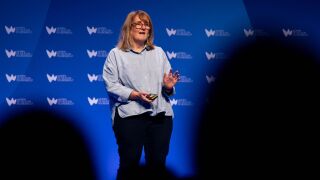The auction, which started yesterday, aims to offset some of the country’s $2.9 billion national debt. The first day of bidding produced $1.27 billion, an alarming 38% under the minimum price set by the government for the entire process according to Reuters.
There are 11 companies taking part in the auction including Spanish operator Jazztel, broadband provider Grupo Corporativo Ono and the Basque-based cable company Euskaltel. The businesses will all be competing in the 270MHz auction, which includes a total of 58 blocks in the 800MHz, 900MHz and 2.6GHz frequency bands. The results of the auction are to be announced over the next 10 to 15 days.
As well as raising much needed funds for the Spanish economy, the new spectrum allocations will allow operators to cater to the growing demands for mobile data. There is also pressure from the EU which requires Spain to make more spectrum available to increase competition.
Across Europe operators are competing for spectrum to further develop next-generation services. Earlier this month, Capacity reported that French regulator ARCEP opened the bidding in its 4G spectrum licence auction in which the government aims to raise over €2.5 billion from telecoms operators. To read the full article click here.
Germany and Sweden are two of the few European countries to have already completed 4G auctions. In Germany, despite strong demand, the spectrum auction raised approximately €4.3 billion, falling short of many analysts' predictions and dropping way below the €50 billion raised from the country's auction for 3G licences in 2000.
Finland is also catching up with its Nordic neighbour with telecoms regulator FICORA already allocating 1.8GHz and 2.0GHz spectrum with auctions of the 2.5-2.69GHz band to follow.
Capacity ran a full-length feature on the issues surrounding spectrum auctions in February (click here).




